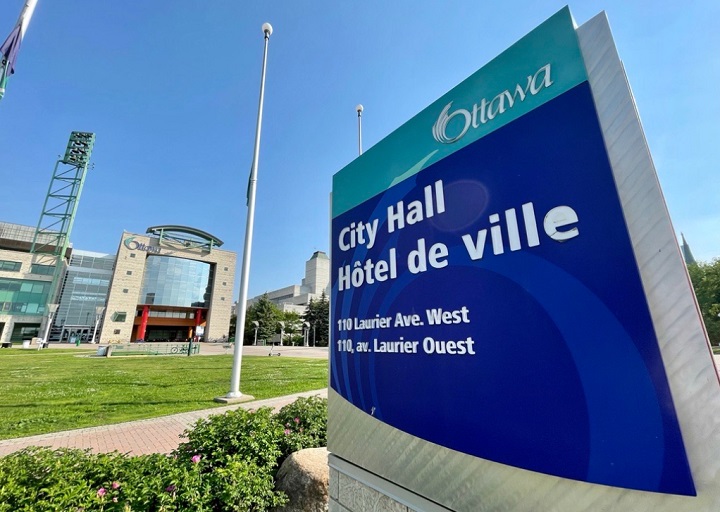Ottawa’s finance committee has set a three per cent increase for the city’s 2022 budget, with room for the same increase to the local police service’s budget despite calls to tighten spending on policing from community members.

The finance and economic development committee approved the budget direction at its meeting Tuesday. The direction still requires sign-off from the full council.
The directions to staff, who will prepare the draft budget for review later this fall, include a three per cent municipal tax increase.
The impact on the typical urban home valued at $415,000 would be an annual tax increase of $119, while a rural home assessed at the same value would be subject to an extra $91. The owner of commercial property pegged at a value of $460,000 would see their tax bill rise $242.
The city-wide levy, which covers services such as Ottawa Public Health and the library, is set to rise by 2.6 per cent under this scheme.
The city’s transit levy is also set to rise three per cent, plus an additional $5 million in capital spending, for a total budget increase of 4.5 per cent year-over-year.
Transit fares would also rise 2.5 per cent in 2022 under the plan.
The item that dominated debate at Tuesday’s meeting was an increase of up to three per cent to the Ottawa Police Services budget, which would see the force’s funding rise an additional $13.5 million if exercised.

The draft 2022 police budget has not yet been submitted and might not utilize the full three per cent increase allocated in council’s directions.
Robin Browne, founder of the 613-819 Black Hub, joined more than a dozen other delegates to call for a freeze on the police budget.
He said the community is speaking clearly against increased policing in the city with recent actions such as an Ottawa-Carleton District School Board’s vote to end a program that saw police embedded in schools.
- Alberta to overhaul municipal rules to include sweeping new powers, municipal political parties
- Grocery code: How Ottawa has tried to get Loblaw, Walmart on board
- Military judges don’t have divided loyalties, Canada’s top court rules
- Canada, U.S., U.K. lay additional sanctions on Iran over attack on Israel
Browne said the community is tired of calling for funding to address the social determinants of health and being told there’s “not enough” while the OPS budget rises by millions of dollars each year.
“Shift that money towards things that actually will help people and reduce crime — housing, mental health care,” he urged councillors on the finance committee.
Mayor Jim Watson and other councillors pointed to the Police Services Act as a limiting factor to defunding the OPS, as the provincial legislation mandates cities provide certain standards of policing in their annual budgets. The majority of the OPS budget and associated annual increases go towards paying salaries.
City council can set a funding direction to the Ottawa Police Services Board but cannot prescribe a line-by-line budget.
The OPSB passed a motion during last year’s budget deliberations that it would endeavour to limit increases or freeze the OPS budget to 2021 levels.
OPSB Chair Diane Deans said at the board’s most recent meeting that it could take “more than a year” to hit that goal and passed a motion to hire consultants to look at ways to trim the police budget.
She reinforced at Tuesday’s meeting that the board is “committed” to reducing the OPS budget. Deans said the board is looking to “strike the balance” between providing a standard of policing while also responding to community demands to reallocate funds to alternative social supports.
“That is what the police service board is committed to doing, regardless of what the budget direction is,” she said.
Some councillors suggested that limiting the city-wide tax hike to three per cent is too limiting to reflect the demands of their constituents.
But Watson pushed back on calls to raise the budget any further, citing the impact of the COVID-19 pandemic on residents’ wallets.
After a year that saw small businesses hit hard and many forced to close their doors, Watson said increasing taxes by more than three per cent is “not the right message to send.”





Comments